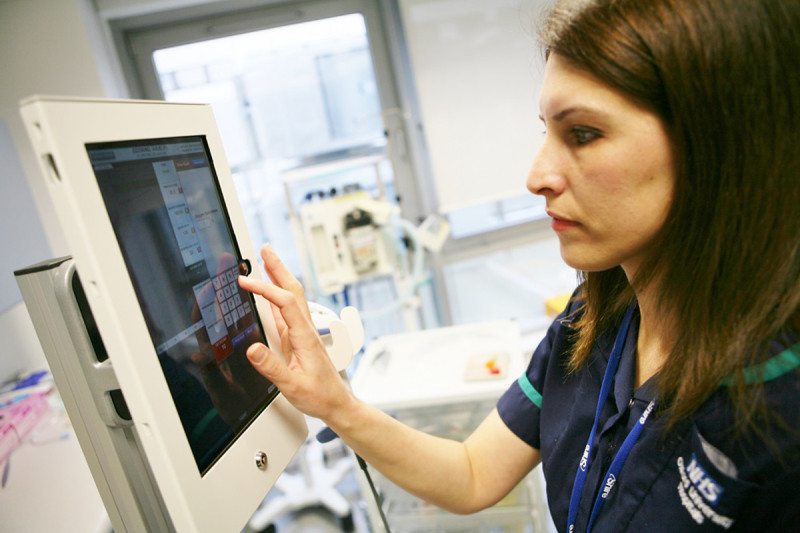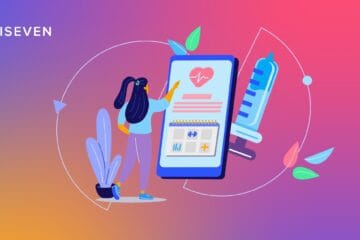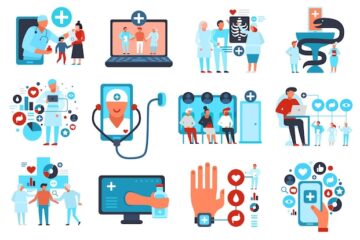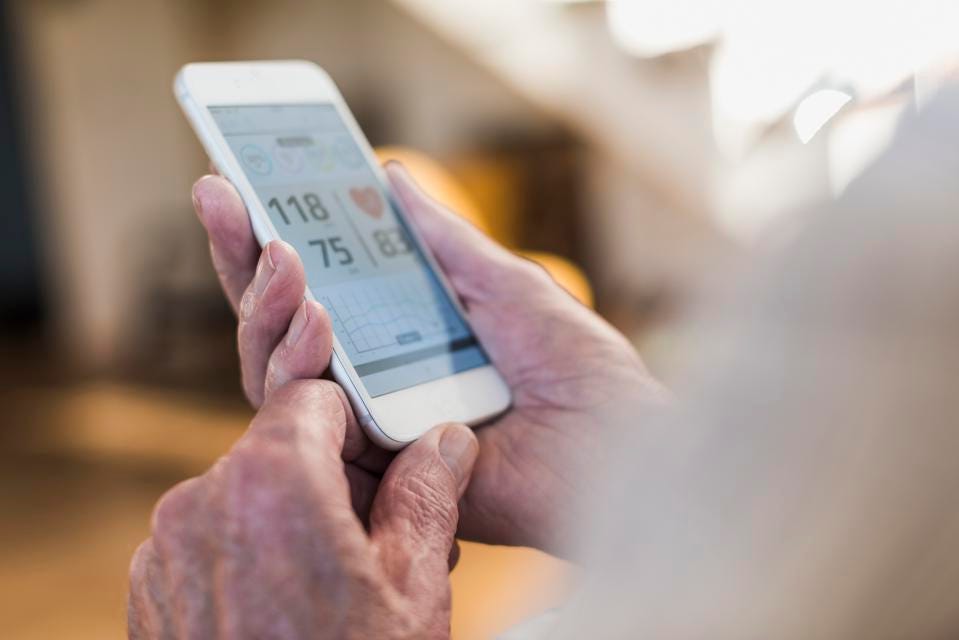
The future of healthcare could be in your pocket. Two new medical apps that help people monitor their health at home, reducing their need to visit a doctor, are set to be rolled out to as many as four UK National Health Service trusts over the next year.
The apps, which are currently being trialled in four hospitals in Oxfordshire, UK, transmit patient data from a tablet or smartphone directly to clinicians. According to Ilan Lieberman, a member of the Royal Society of Medicine’s council on telemedicine and e-health, such apps will have a huge impact on the management of chronic diseases.
One system, called GDm-health, helps manage the treatment of gestational diabetes – a condition that affects about 1 in 10 pregnant women. The smartphone app lets women send each blood glucose reading they take at home to their diabetes clinician.
“Now when a diabetes midwife logs on between clinics, she will see all the patients who are most in need of attention,” says Lionel Tarassenko, of the Oxford University Institute of Biomedical Engineering, who led the development of the technology. A two-year trial at the Royal Berkshire NHS Foundation Trust found that the system meant that patients didn’t need to go in person to the clinic as often, reducing the number of patient visits by 25 per cent.
App-solutely fine
“We’ve got three trusts wanting to install this for their gestation diabetes management,” Tarassenko says, but his research group is too small to support any more trials. To overcome this hurdle, Drayson Technologies, owned by entrepreneur and Labour peer Paul Drayson, is setting up a team of developers and support staff based in Oxford, UK, to commercialise it. The team will manage the rollout of this technology – as well as two other apps – at up to four as-yet-unnamed NHS trusts within a year. Beyond that, Drayson says he plans to eventually offer these products to the entire NHS.
“This technology enables patients to go home and then be able to safely monitor their condition and be well connected back to the hospital,” Drayson says. Charles Lowe, managing director of the Digital Health and Care Alliance, says that these smartphone apps make it easier for patients to manage their conditions while carrying on with their daily routines.
Another system being rolled out by Drayson Technologies, also developed by the Oxford University Insittute of Biomedical Engineering, is for managing chronic obstructive pulmonary disease (COPD), a condition that affects between 1 million and 1.5 million people in the UK. Patients with COPD use a finger probe to measure their heart rate and blood oxygen saturation every day and enter the results into an app. After three months of measurements, the app learns to recognise a patient’s specific range of normal oxygen saturation levels, and issues an alert to clinicians when the measurement falls below that range. “It is very important that the analysis adapts to individuals,” says Tarassenko. If the system is too sensitive, it will send too many alerts to clinicians, but if it’s not sensitive enough, it might miss problems.
In a 12-month clinical trial, the app reduced hospital admissions by 17 per cent and GP visits by 40 per cent. “Patients are much more confident about managing themselves and are getting into trouble far less often,” Tarassenko says.
A third product ready for rollout, called SEND, is an iPad app used by nurses to input details about patients’ vital signs as they make their rounds of the wards. It automatically calculates an early warning score based on the vital signs, giving an indication if the patient is deteriorating.
Critical journey
Rury Holman, at the Oxford Biomedical Research Centre, thinks the NHS trials are the right way forward. Although smartphone app stores are already crammed full of medical apps designed to manage all kinds of conditions, he believes that if similar apps are going to be used in the UK healthcare system, it’s vital they are developed in close collaboration with the NHS.
“It’s a bit like the Wild West out there with lots of keen and very motivated people producing these apps,” he says. “What we need are consistent standards and an interface with electronic patient records, particularly with the NHS, so that information, with permission from the patients, can be put to use centrally.”
But approaches like this can raise privacy concerns. Last year, New Scientist revealed details of a data-sharing agreement between the NHS and Google’s DeepMind that gave the company access to healthcare data on 1.6 million patients including details of drug overdoses and abortions. Since late 2015, the AI company has been developing a healthcare app, Streams, that monitors the health of people with acute kidney injury.
According to Tarassenko, his diabetes and lung disease apps only have access to information relating specifically to those conditions. The measurements sent to clinicians via the app are fed into existing patient records, but that process takes place outside of the app, within the NHS’s central patient record systems.
Developing these apps has taken eight years, but Tarassenko says securing the appropriate ethical clearance and building up a clear evidence base for their use is a critical, journey. “It’s been very important for us to have credibility with our clinical colleagues, and we will continue to do that because it’s designed in the NHS, for the NHS.”
[Source:-New Scientist]




